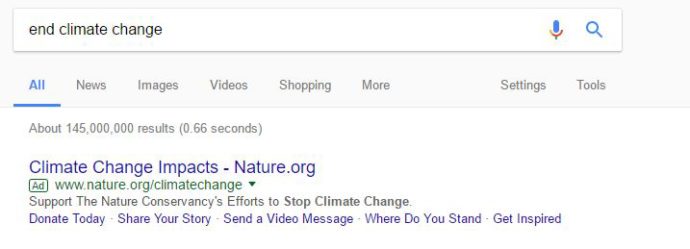Google Grants is a pretty terrific program for 501(c)3 nonprofits. If you’re not familiar with it, Google offers $10,000 per month in free search ads to qualified nonprofits. It’s easy to apply, and if used properly, it can give a nice boost to your online goals. I’ve seen organizations use Google Grants to build their email lists, for instance, with great success. But while the Grants program is quite similar to using a paid Adwords account, there are certain limitations that require a different strategy than you’d use for paid ads. That can make it tricky to figure out what will perform best for your Grants account. With a “normal” Adwords account, your success is based largely on your budget and the competition for your keywords. (It’s also based on the quality of your content – but that’s a topic for another post.) If you’re advertising on a popular topic using a very general keyword, like “donate,” you’re going to get a lot of competition from other non-profits. To beat that competition, you have two choices: Get more specific. If you can advertise instead on, say, “donate to save octopuses,” you’ll have less competition and lower costs – assuming people Read More




